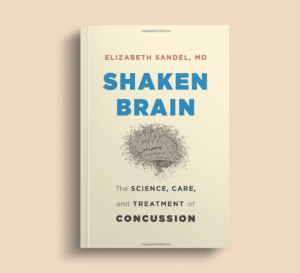What is ImPACT for Concussion and Who is It For?

Maybe you or a family member have just taken, or are planning on taking, the ImPACT assessment and are wondering what ImPACT is and how it’s used. This brief overview will give you the basic facts.
What is the ImPACT assessment for concussions?
ImPACT, which stands for Immediate Post-Concussion Assessment and Cognitive Test, is a common testing protocol in the area of brain injury. Developed in the late 1990s at the University of Pittsburgh and released in the early 2000s, the test is the only FDA-approved tool for concussion assessment.
It is a computerized tool that tests a person’s cognitive (thinking and memory) abilities. The test takes about 25 minutes and asks a series of timed questions in the following areas:
- Attention
- Speed of processing information
- Verbal memory
- Visual memory
- Visual motor speed
- Multi-tasking ability
Who should undergo ImPACT testing?
As the name implies, this test was developed to be administered immediately after a concussion. Anyone who has suffered brain trauma, whether from a sports injury, car accident, abuse, fall, or other trauma, may be advised by their physician or healthcare provider to undergo ImPACT testing. Testing after the trauma when brain injury is first diagnosed helps clinicians develop a treatment plan. Continued testing allows them to track progress over time.
This testing protocol is appropriate for adults and children 12 and older. ImPACT Pediatric, for children between the ages of 5 and 11, was released in August 2016.
Baseline testing for best results
It’s also recommended that people at high risk, such as youth athletes playing collision or high contact sports, take the test before any trauma has occurred. Because this tool works best when baseline levels are available for comparison, professional and student athletes are encouraged to complete the ImPACT before engaging in sports. Baseline testing is becoming more common as people realize how valuable this tool is in planning and tracking recovery.
Baseline tests do not need to be administered by a healthcare professional, but do need to be administered by someone with training. Athletic trainers, athletic directors, and coaches can be trained to administer the test and often do before the start of the sports season or school year, as they are in close contact with athletes who are at risk for sustaining concussion.
Does ImPACT diagnose concussions?
ImPACT is not a tool for diagnosis of concussion; a physician or other qualified healthcare provider will diagnose concussion using other tools such as symptom checklists, physical and other cognitive examinations, and brain scans. Instead, ImPACT is used to measure progress in recovery and to help physicians develop a treatment plan.
Doctors and clinicians with the title of “Credentialed ImPACT Consultant” (CIC) have gone through special training to use and administer the tool.
Learn more about ImPACT and concussions in youth sports
Discover more about how ImPACT testing is used in the real world in Dr. Sandel’s interview with Dr. Richard Delmonico, Chief of Neuropsychology, Kaiser Foundation Rehabilitation Center in Vallejo, California, and Co-director of the Sports Concussion Program at Kaiser Permanente’s Trauma Center in Vacaville, California.
You can find that interview here.
You Might Also Like
Comprehensive Care of Concussions
Dr. Richard Delmonico, a neuropsychologist, outlines the approaches to triage and treatment in a concussion clinic in the Northern California Kaiser Permanente health system. He also discusses the uses of neuropsychological testing to help with diagnosis and management of people with concussions and other brain injuries.
Getting Top-Notch Care after a Concussion
Concussion clinics vary in terms of protocols and personnel. Neuropsychologist Richard Delmonico discusses one model in the Kaiser Permanente health system.
Keep up to date
Get updates on the latest in concussion, brain health, and science-related tools from Dr. Elizabeth Sandel, M.D.
By clicking SIGN UP, you agree to receive emails from Dr. Sandel and agree to our terms of use and privacy policy.
Get the book!




